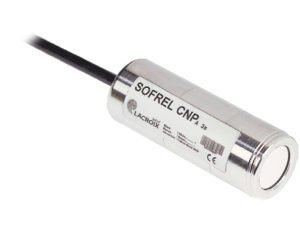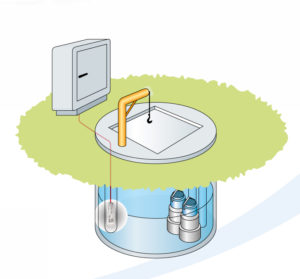
WATER LEVEL MEASUREMENT SENSOR CNPa
Reliable and competitive:
The sensors used for water and / or wastewater applications face a series of limitations in the measurement of the level:
- Pressure sensors (especially those made of stainless steel) strongly show the deposition of material on the sensor (clog) resulting in error and / or inability to measure. They are also vulnerable to the corrosive environment in which they are called upon to function.
- Ultrasound measurement sensors have measurement reliability problems (due to “foam” – Pseudo echo- turbulence and waves).

Advantages:
The CNPA sensor of SOFREL, due to its design, has the following advantages:
- Reliability in measurement due to ceramic membrane which, in addition to precision, is easy to clean without allowing material to be deposited on the clog.
- Ease of installation close to the bottom (usually inside a pipe to avoid turbulence due to pump operation for example).
- It does not require external power supply, so it ensures continuity of measurement even in the absence of voltage in the power supply.
- The CNPA sensor with competitive market price and low operating and maintenance costs, helps keep the cost of the installation low.

Additional advantages:
By using the Sofrel S500 series or other remote terminal units and / or PLC’s, the CNPA Level Sensor significantly enhances telemetry and SCADA imaging:
- By continually measuring the level in a tank, both input and output can be calculated more accurately
- Ability to create and manage point-of-action start / stop points in relation to mechanical devices.
Conclusion:
The SOFREL CNPA level sensor is a step forward in improving control and telemetry processes in wastewater and sewage plants, remaining technically in progress, competitive financially and reliable in its operation.





